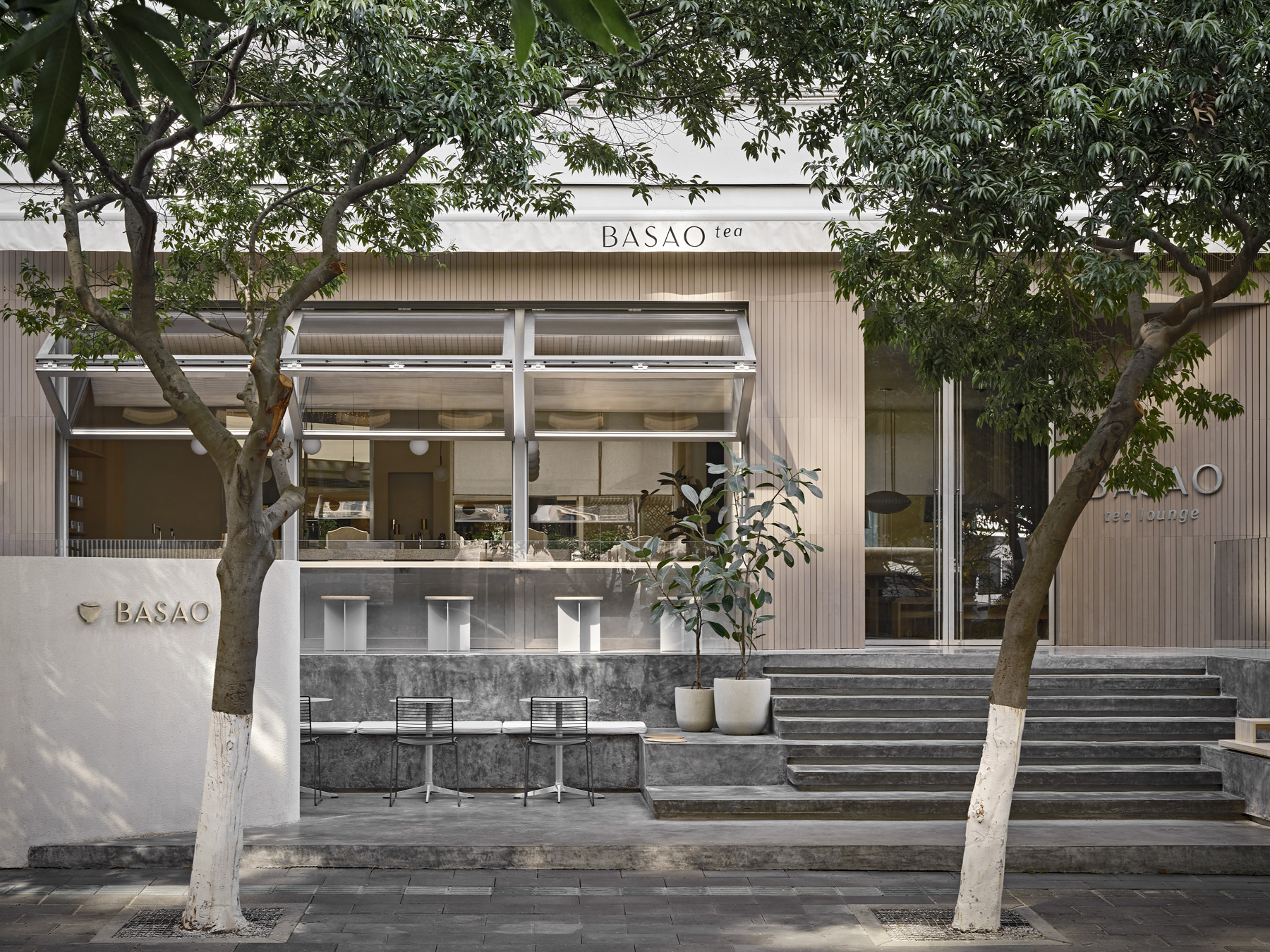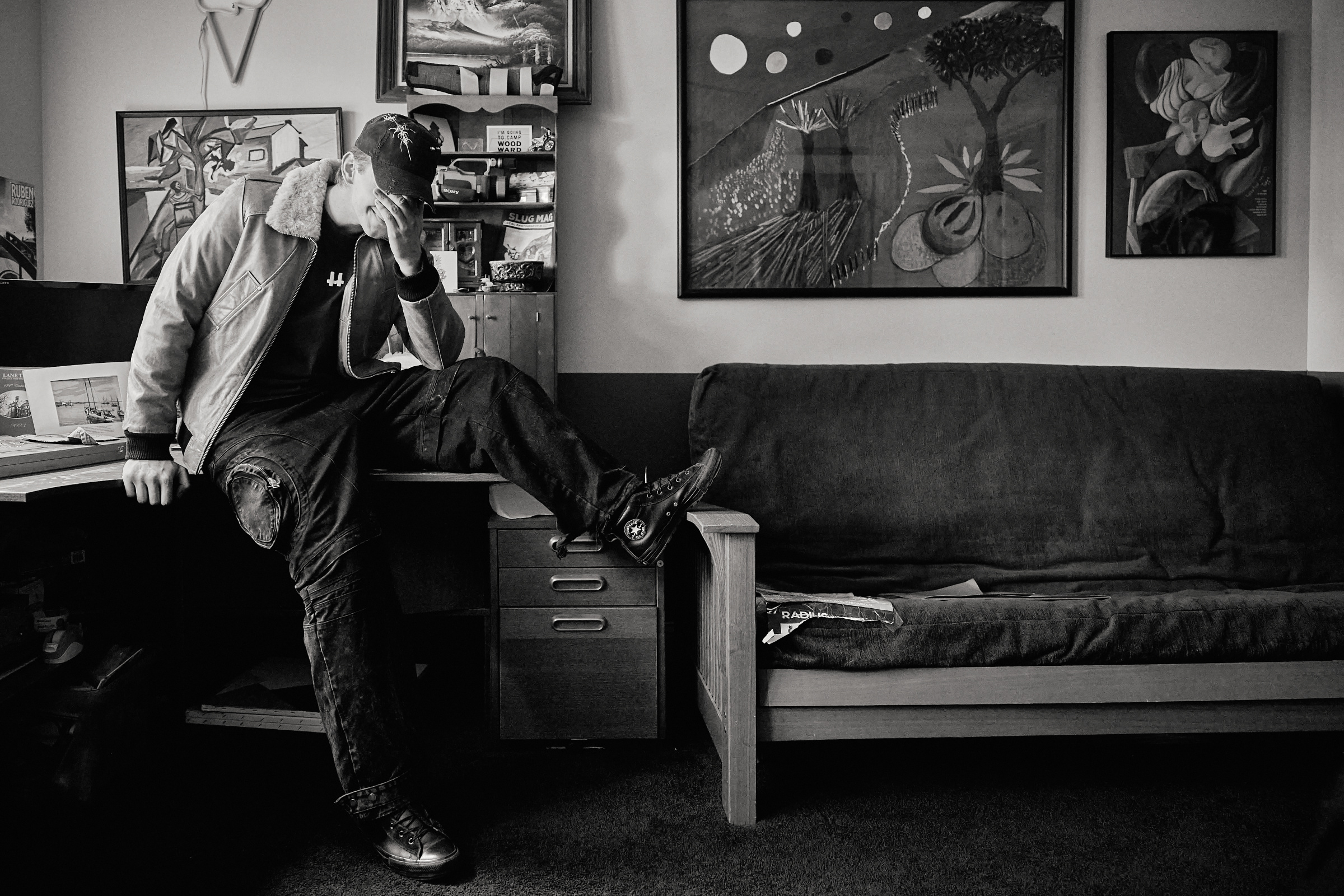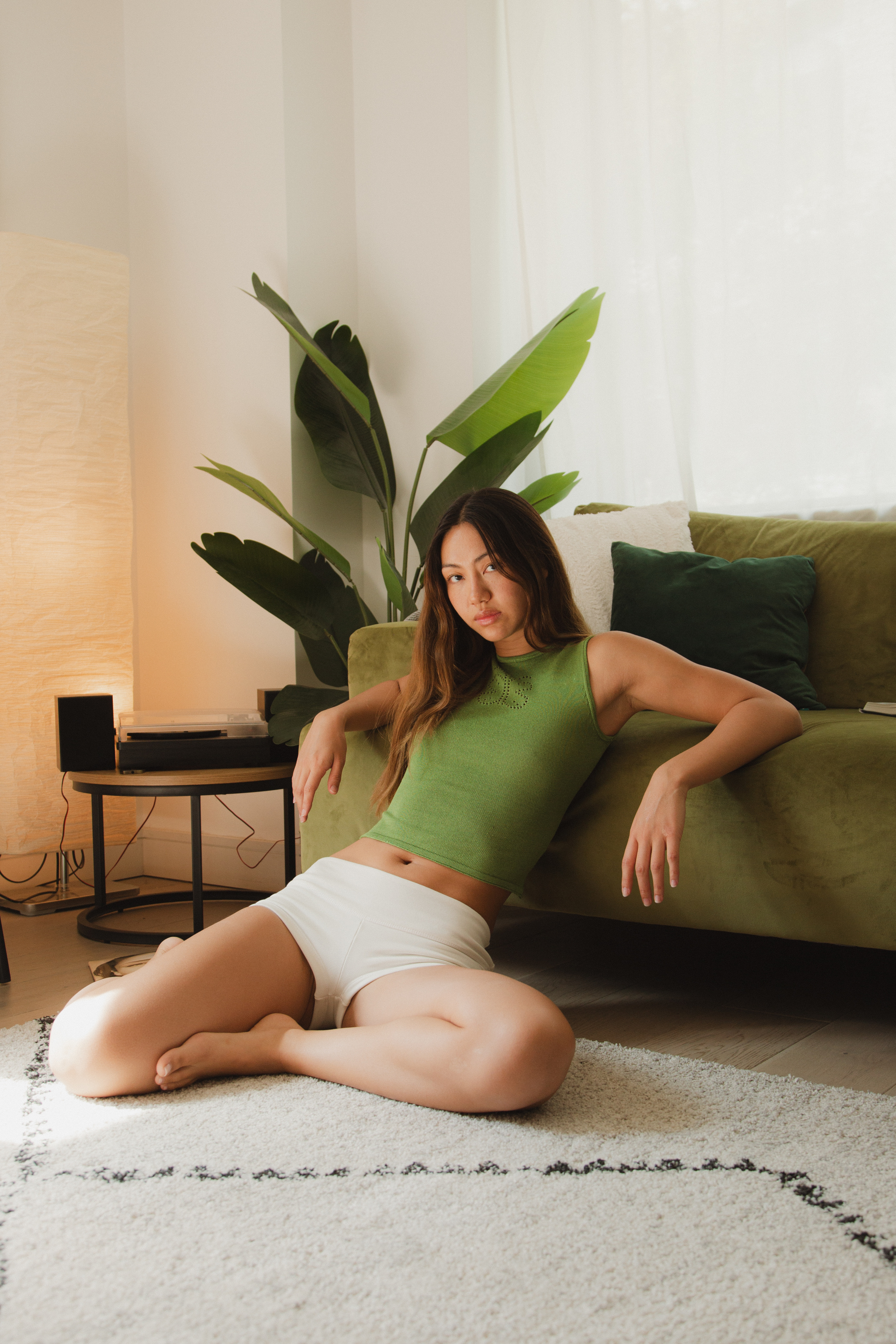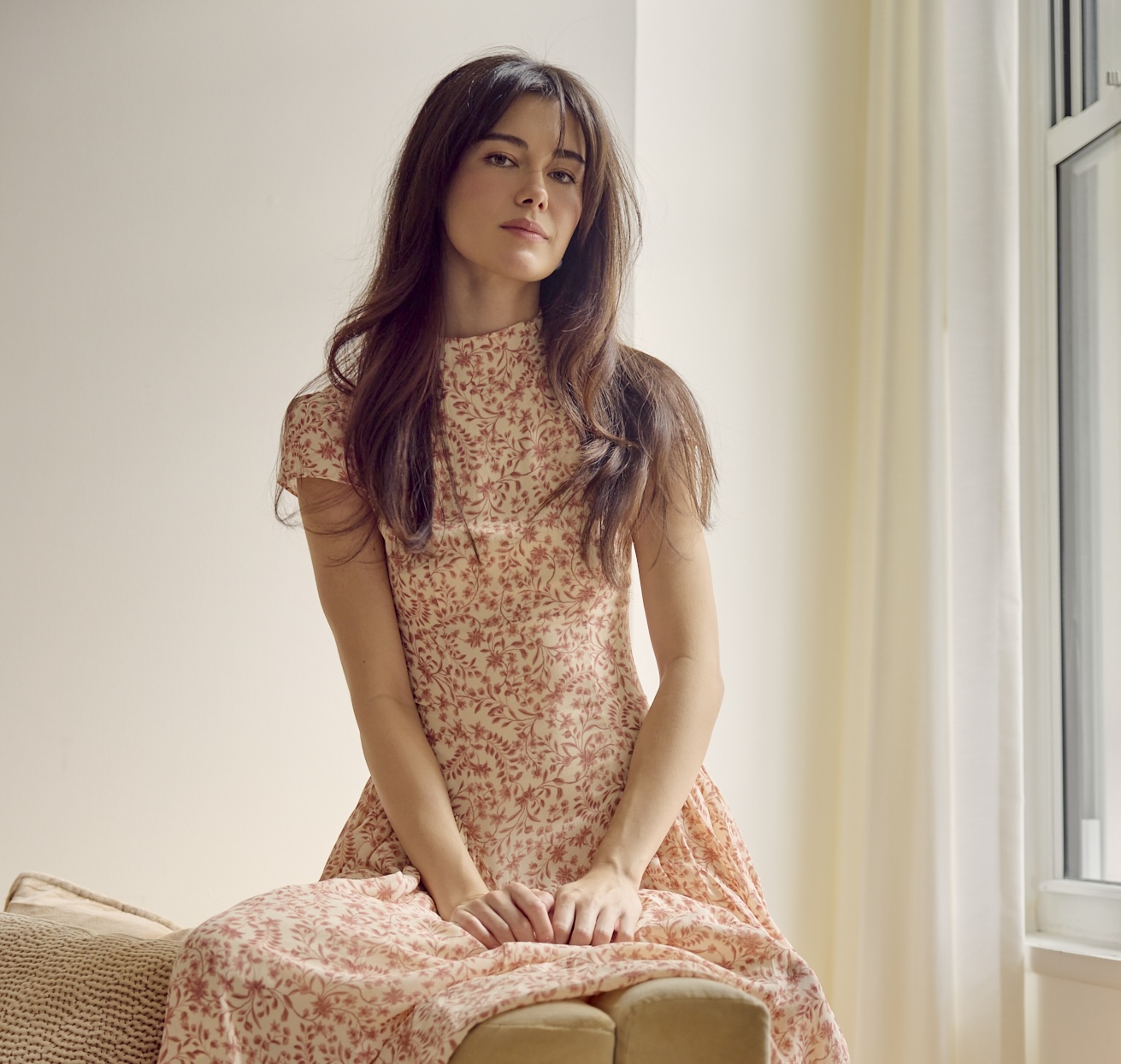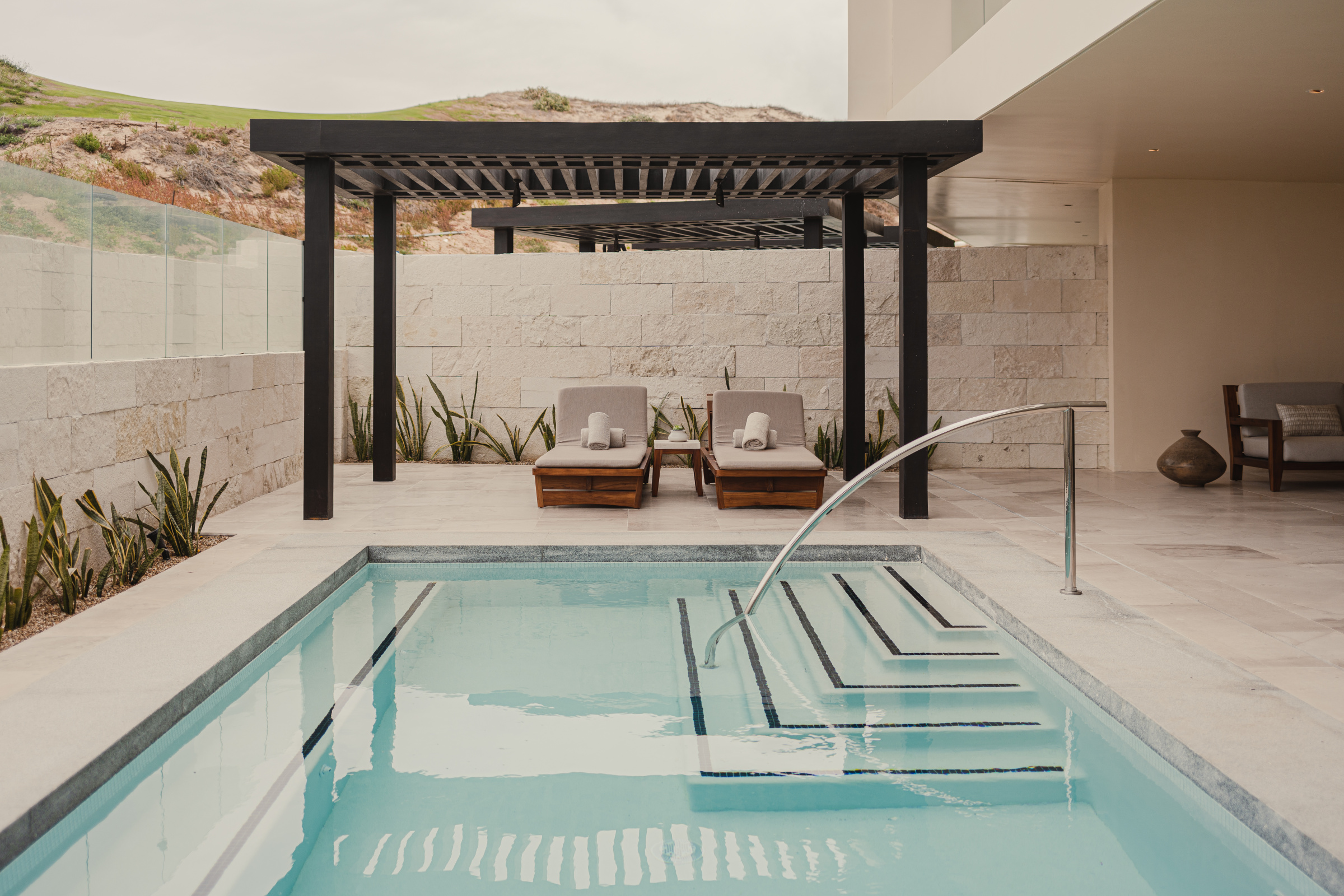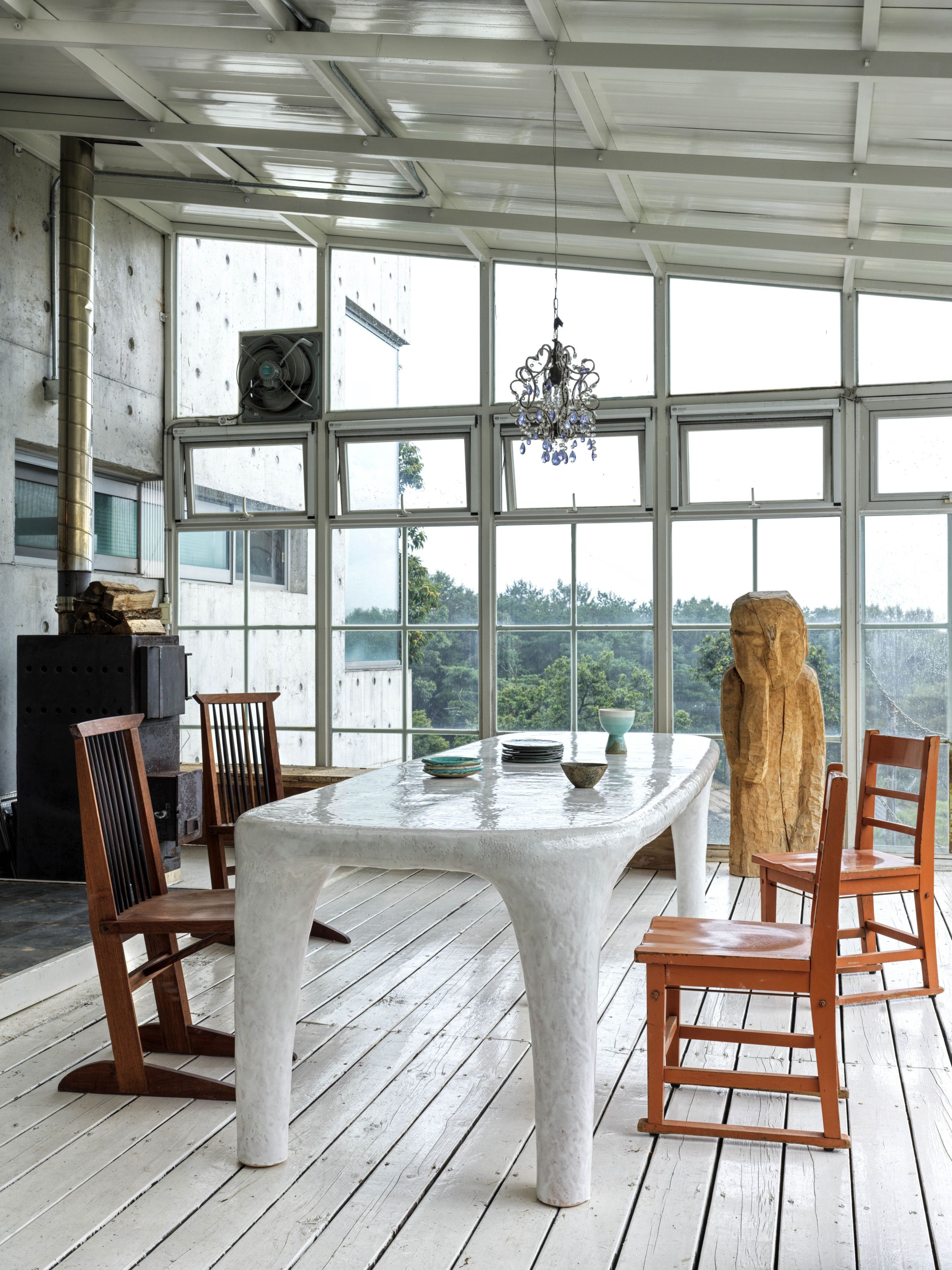BASAO Tea Lounge in Xiamen, China allows visitors to experience the sounds and sensations of tea, transporting them far from the city while maintaining authentic roots to its locale. Calming acoustics and subtle colors encourage contemplation while natural light and rich textures invite visitors to take a spot at the tasting counter.
A Sensory Immersion into Tea
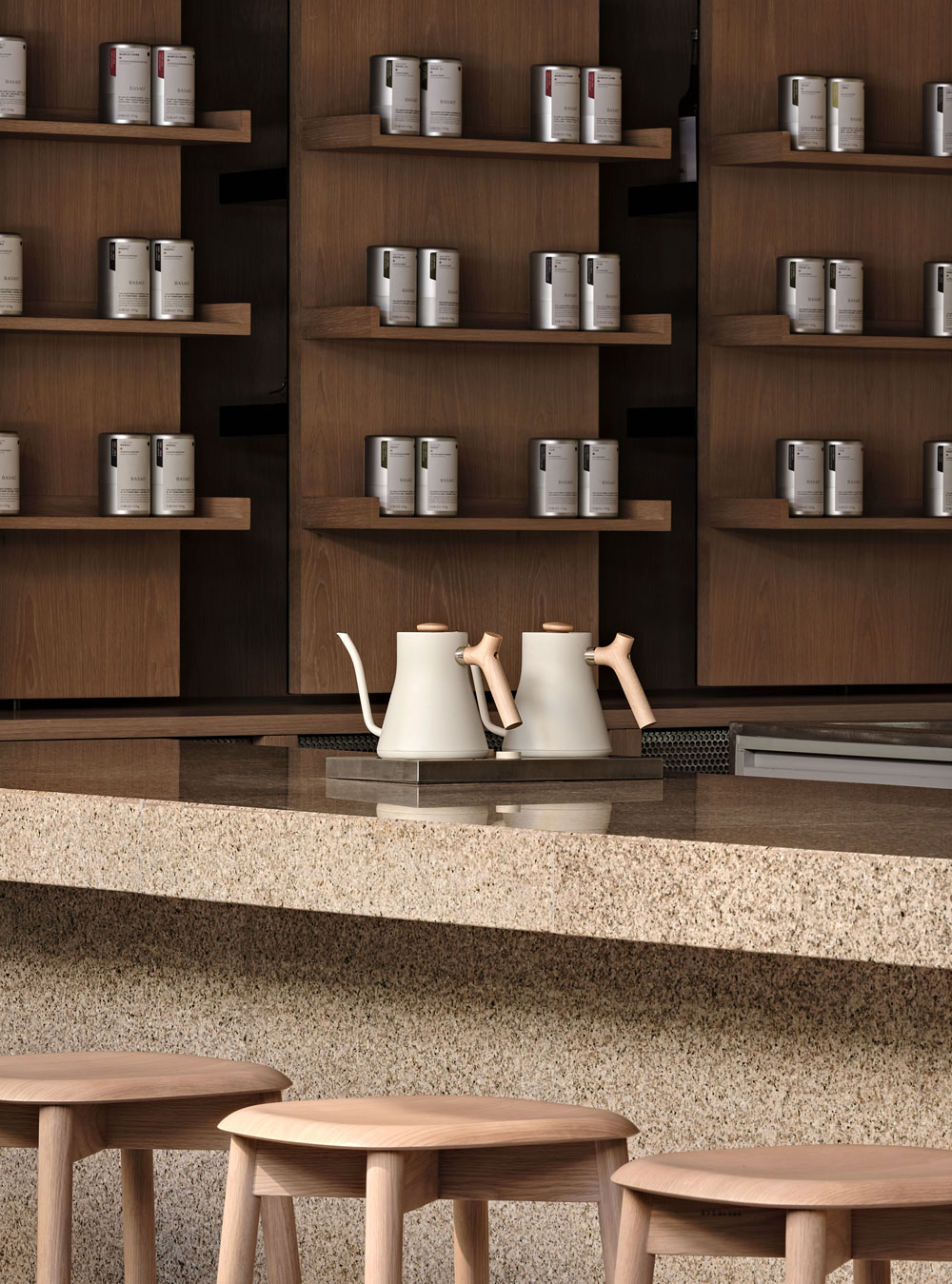
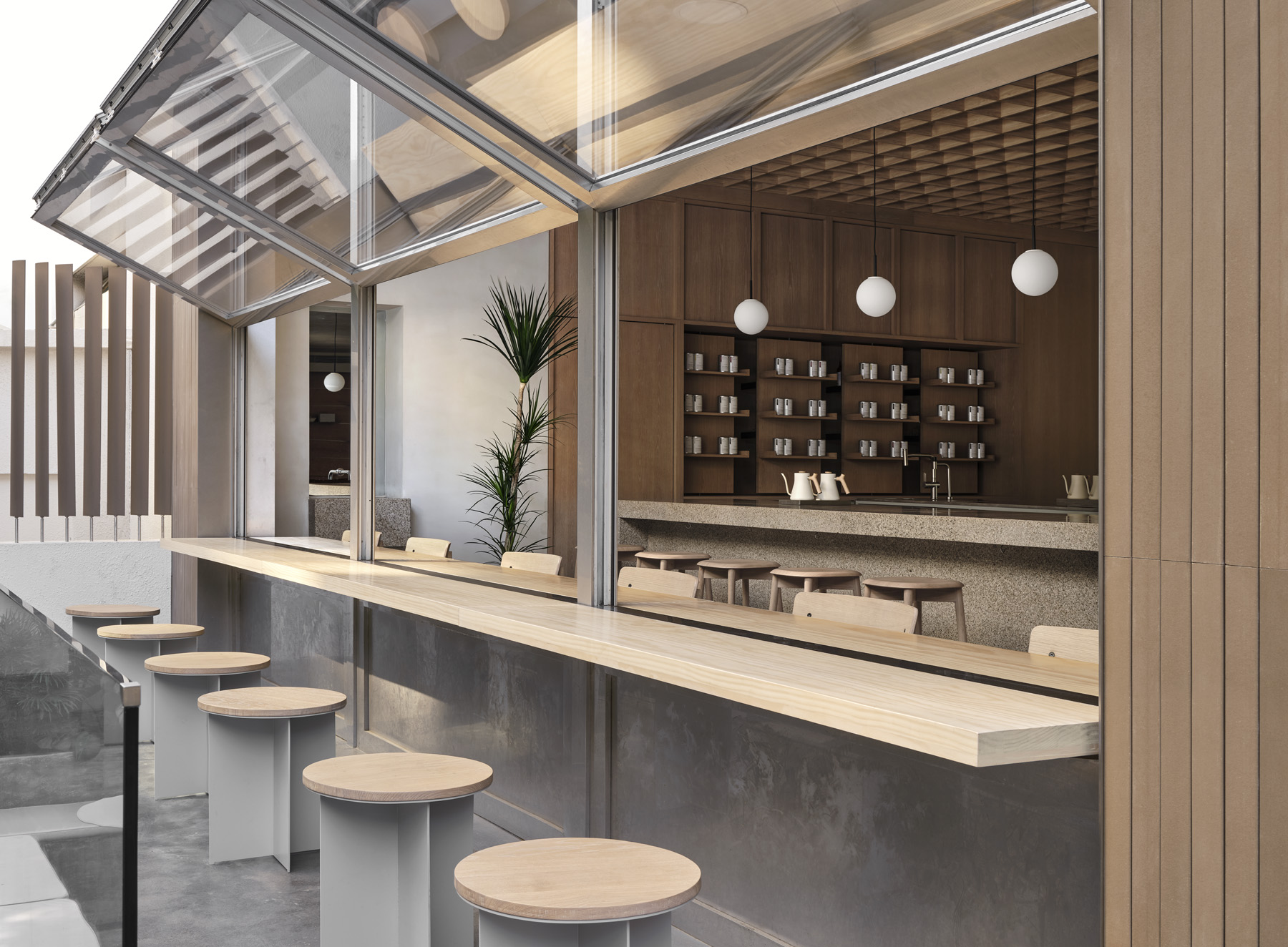
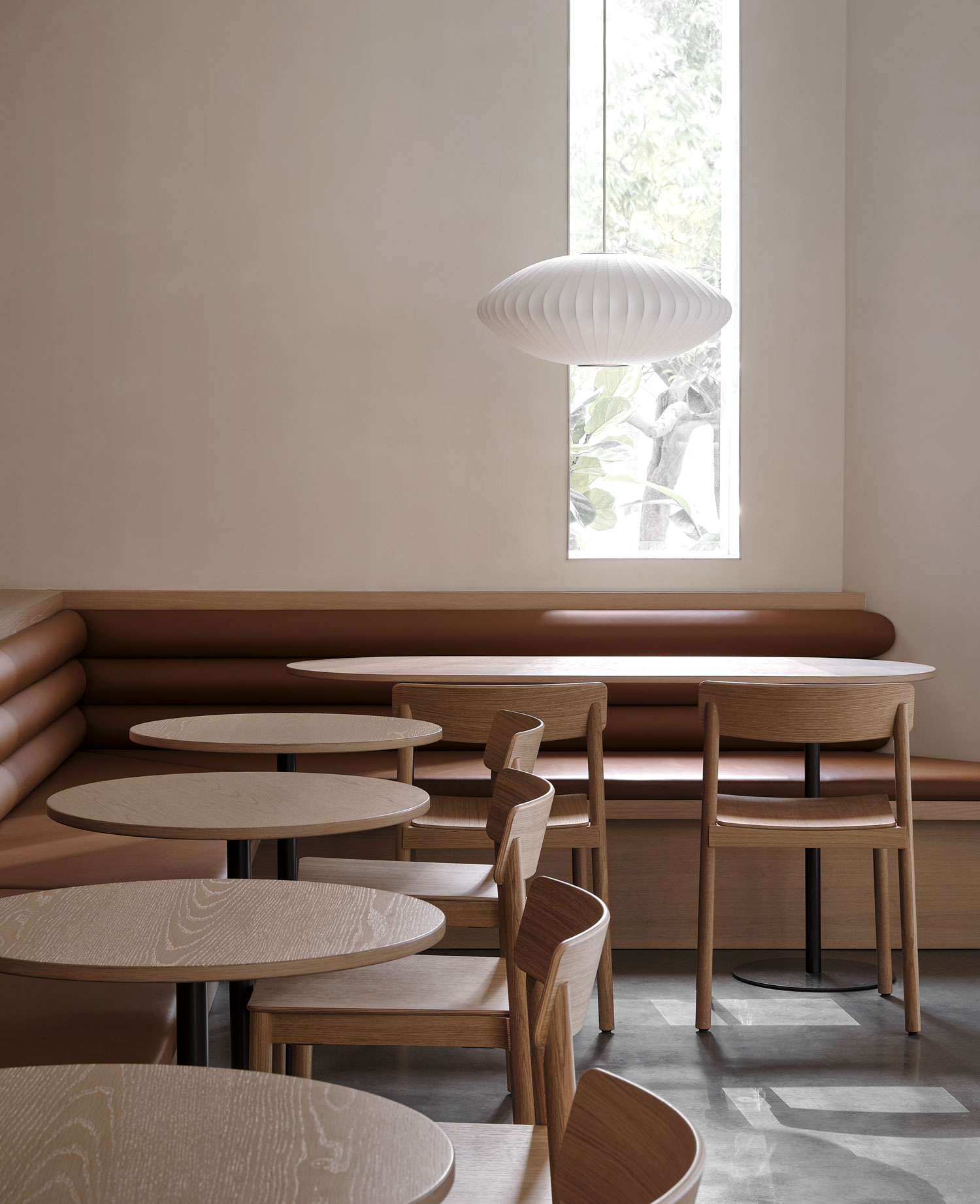
Designed by Norm Architects, the tea lounge merges retail, cafe, and elements of ancient tea ceremonies in a single space.
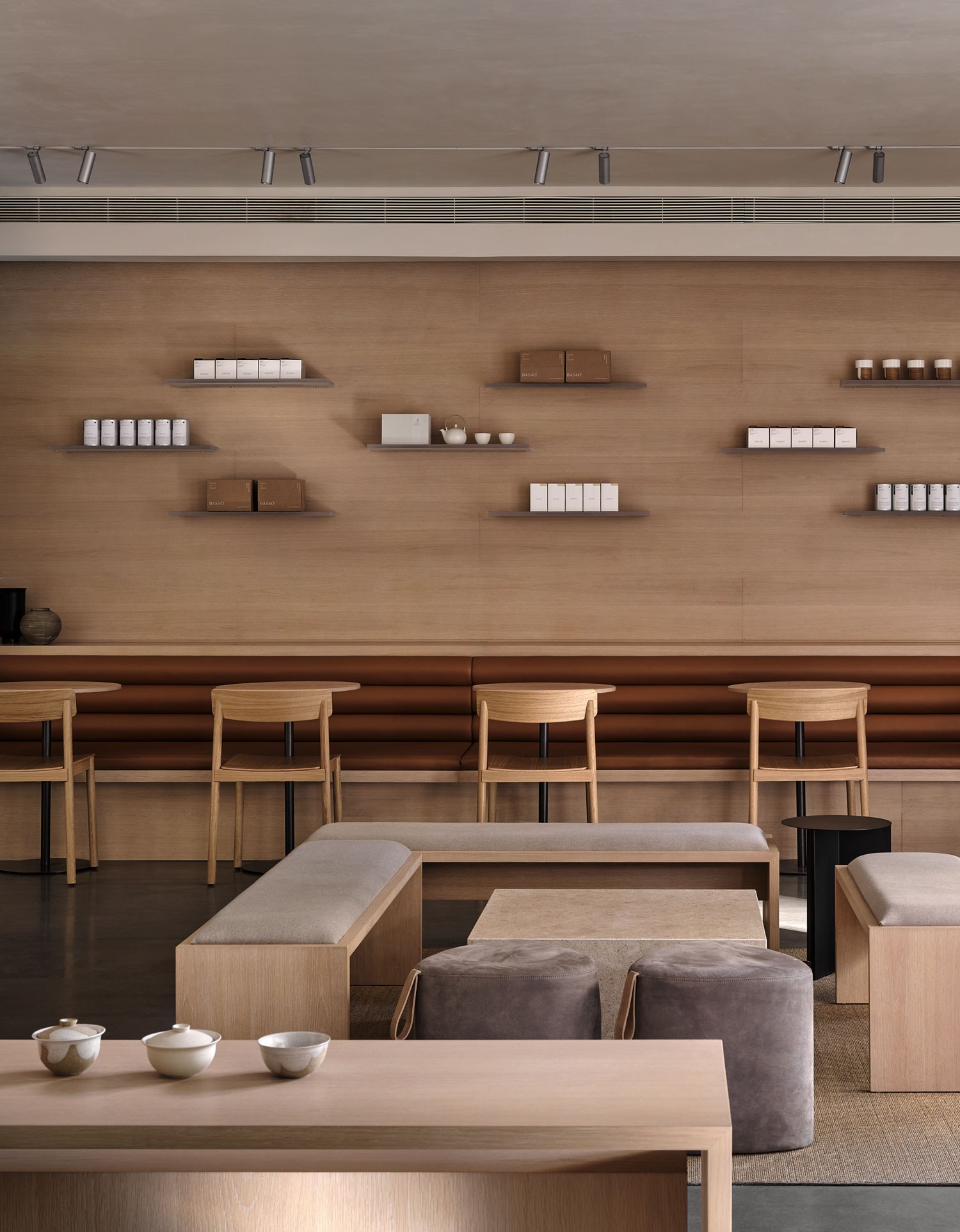
The philosophy of the space is strongly influenced by the writings of Baisao, the Japanese monk for which the store is named. He believed that space for quiet contemplation was the antidote for fast-paced life.
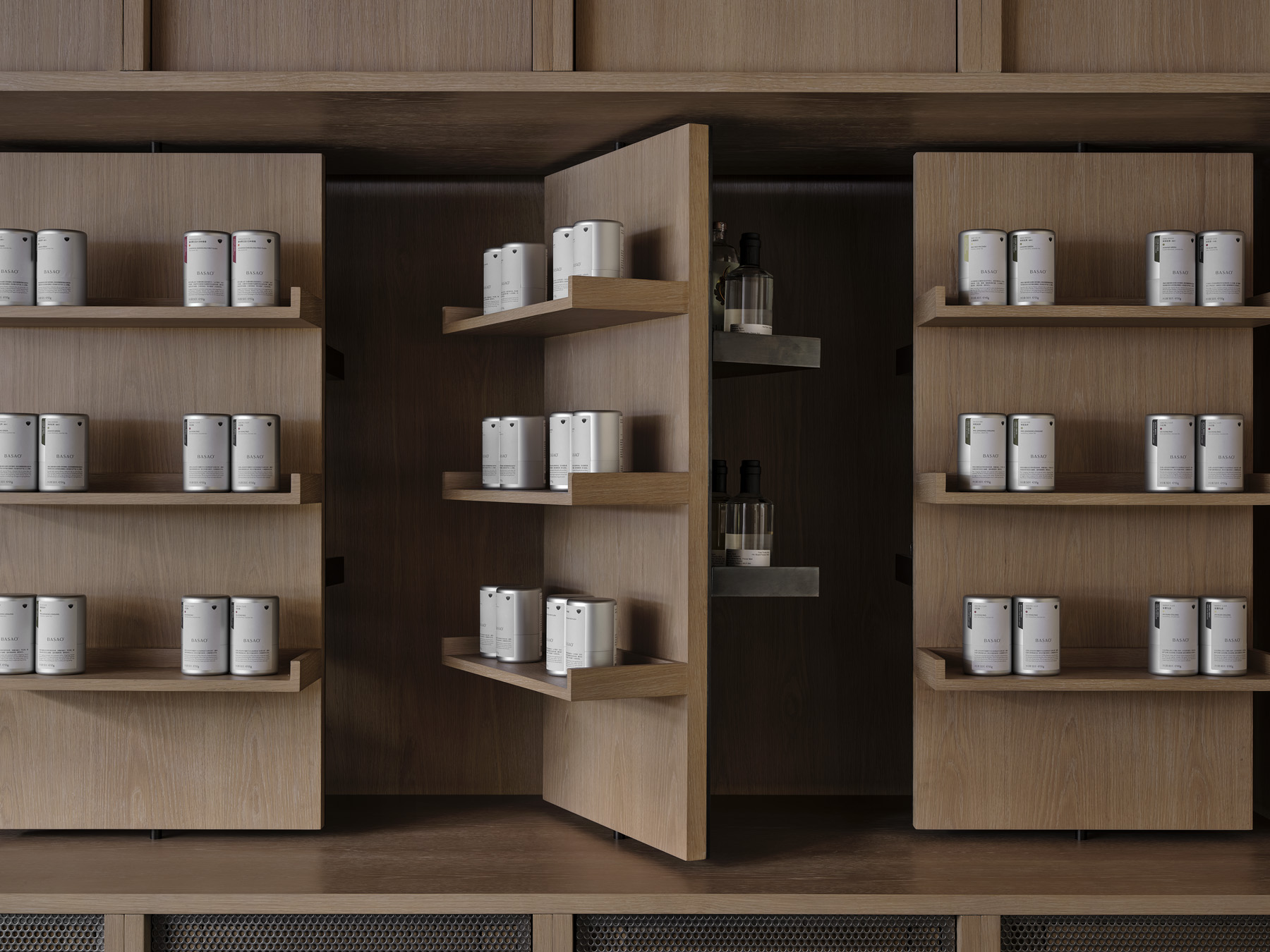
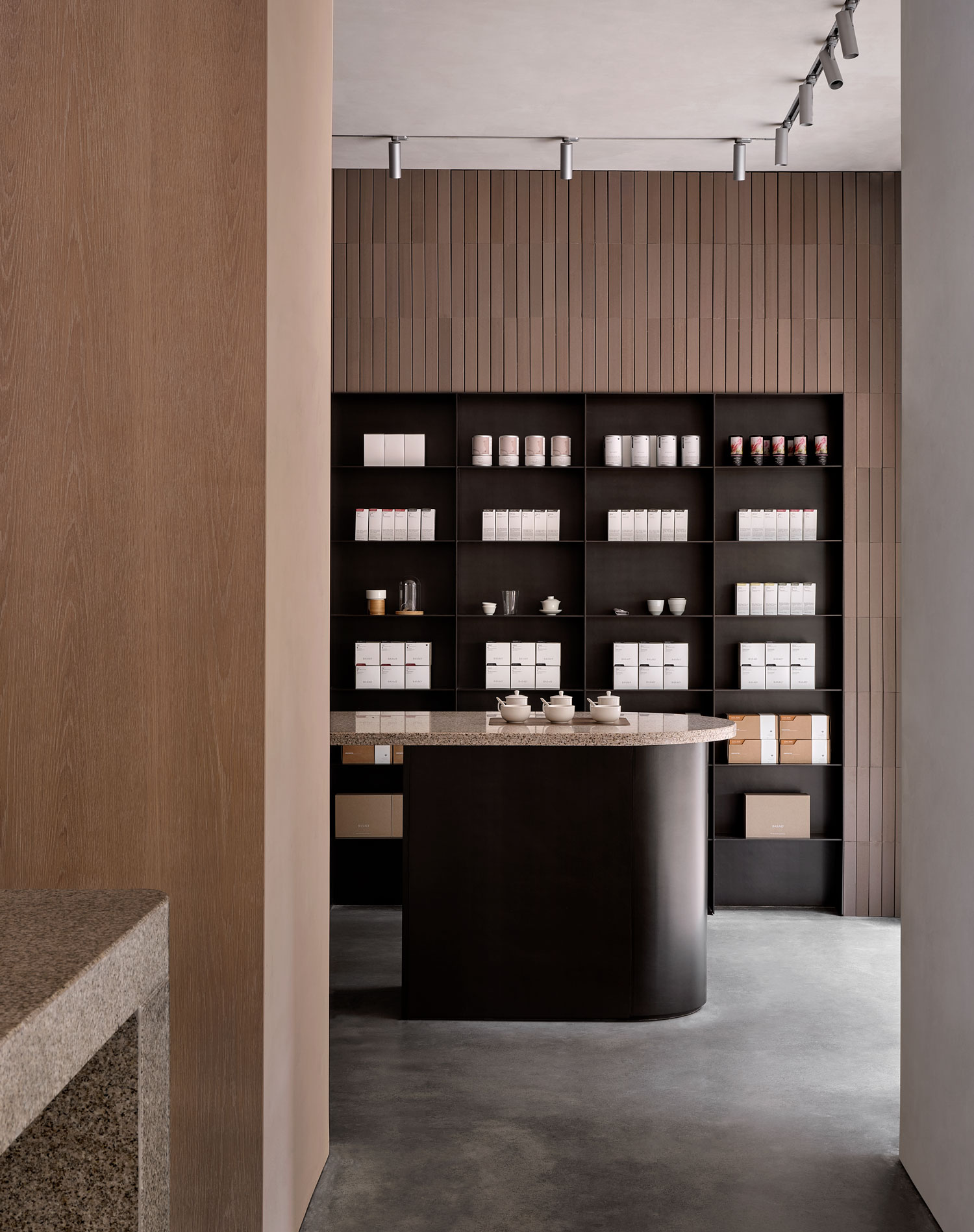
The architects considered the holistic experience in the tea lounge, starting with the textures of the materials. Like the aromas of tea, the store is made of vibrant and natural materials.
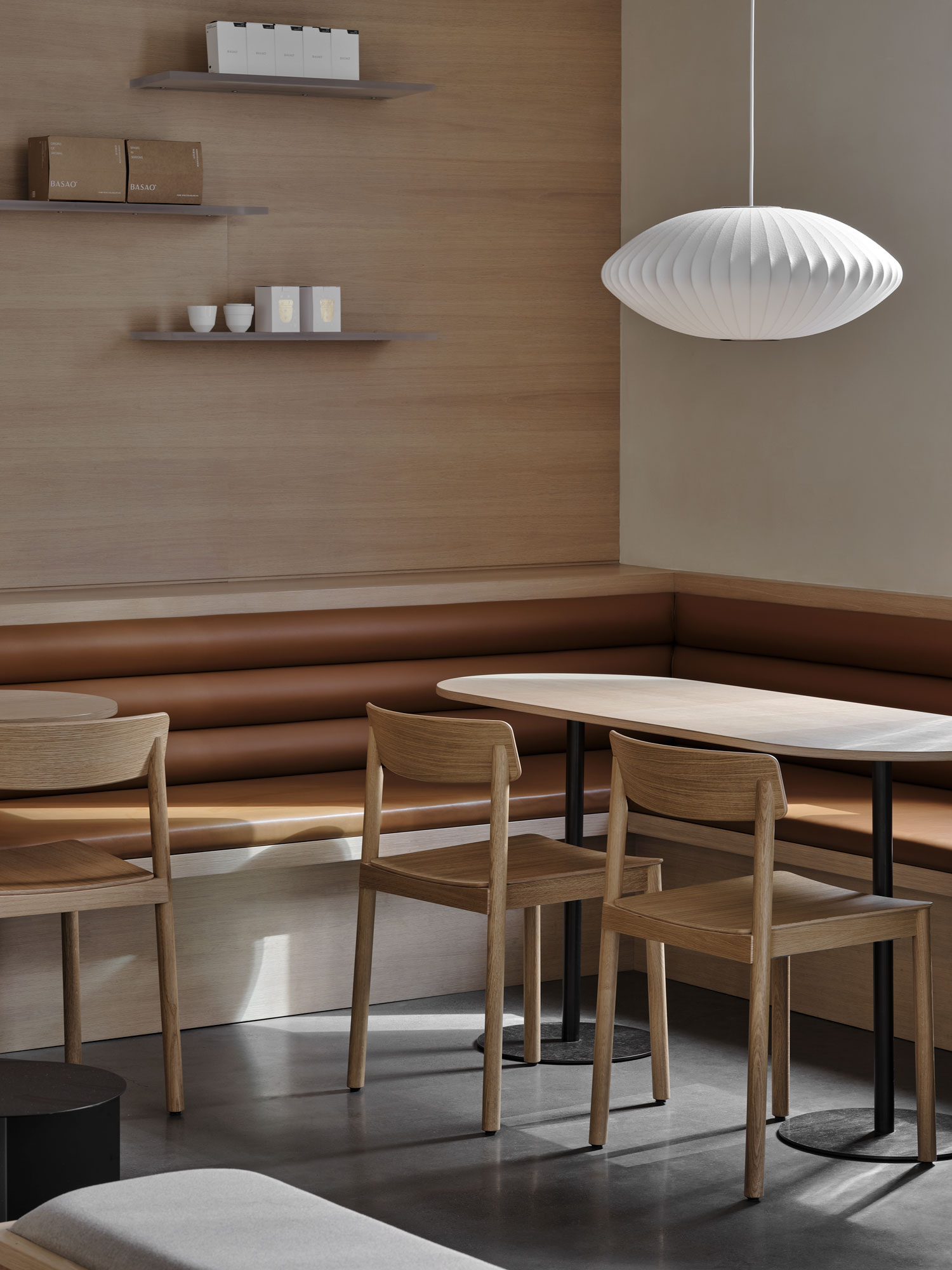
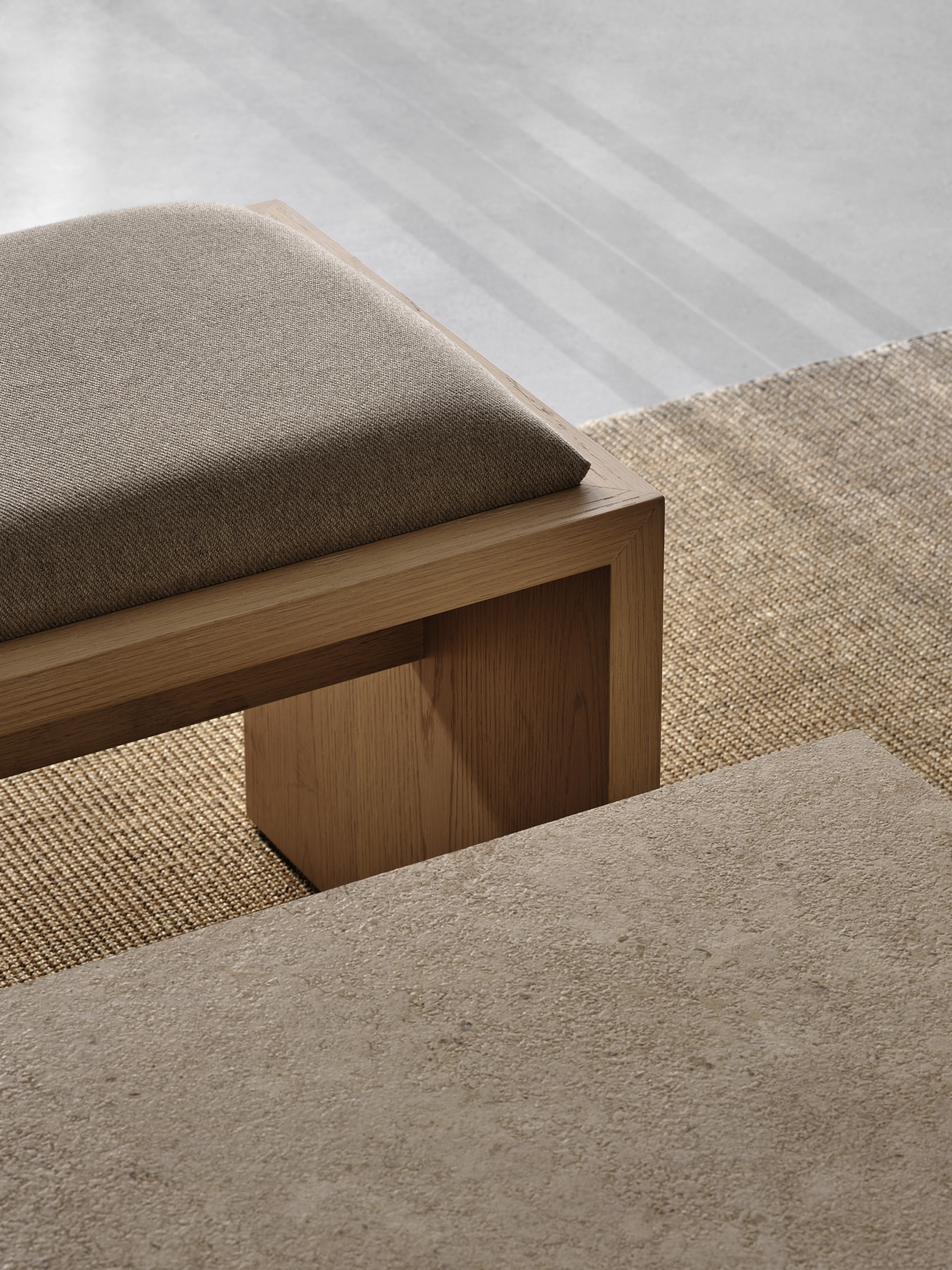
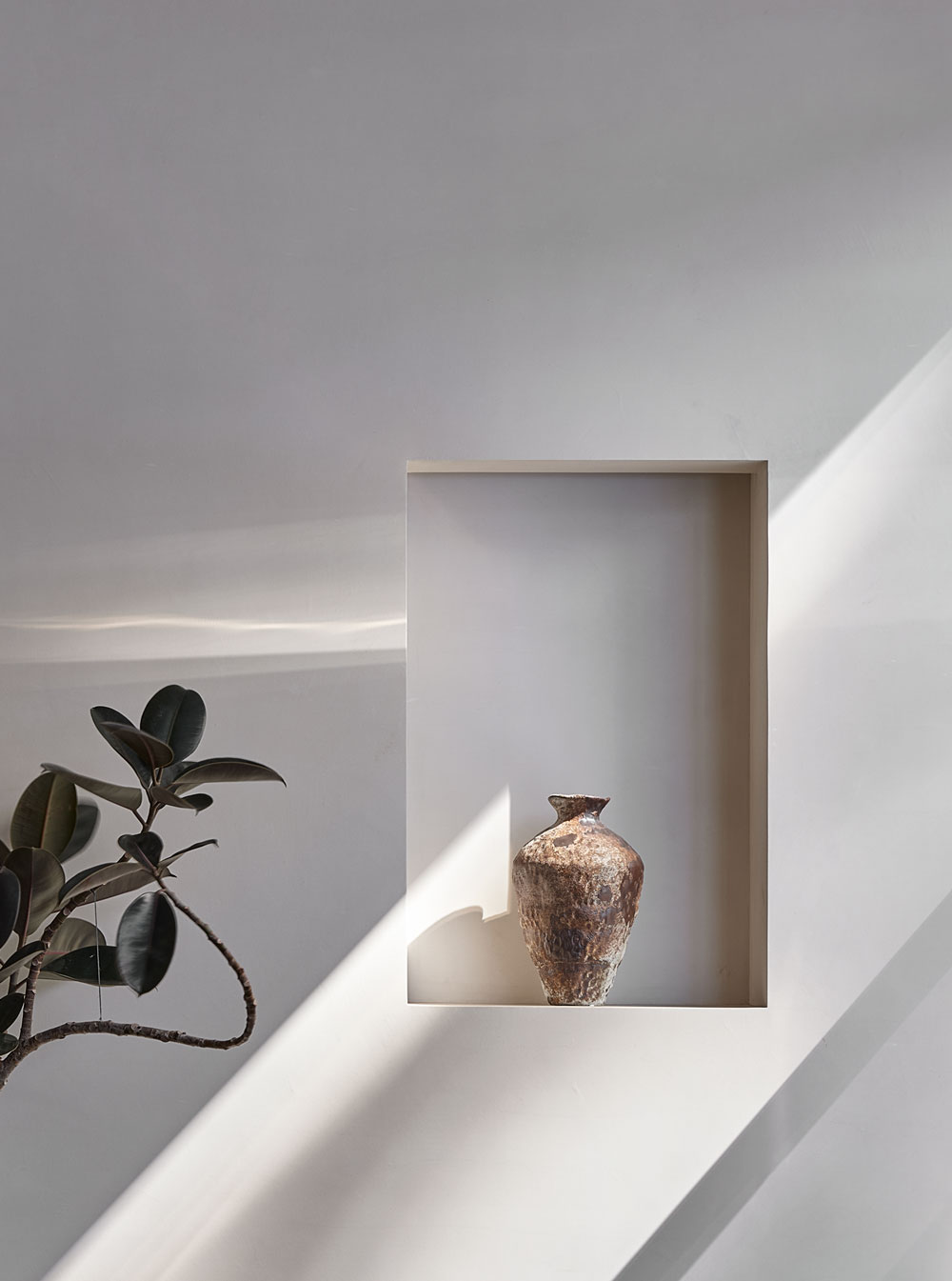
Locally sourced terracotta tiles, Chinese stone, oak wood, metals, and fabrics interplay in the space, creating contrast between polished and rough, soft and hard surfaces.
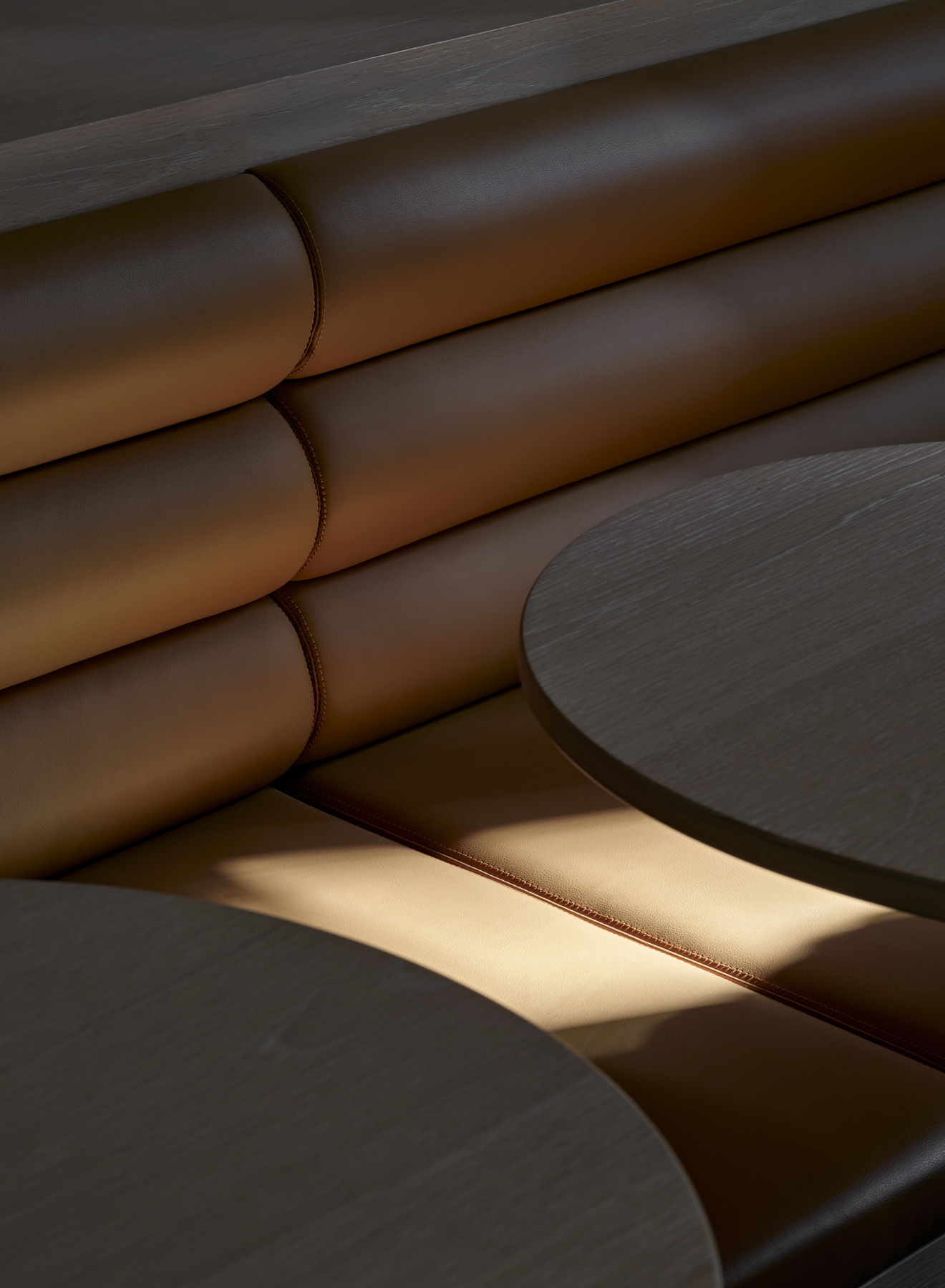
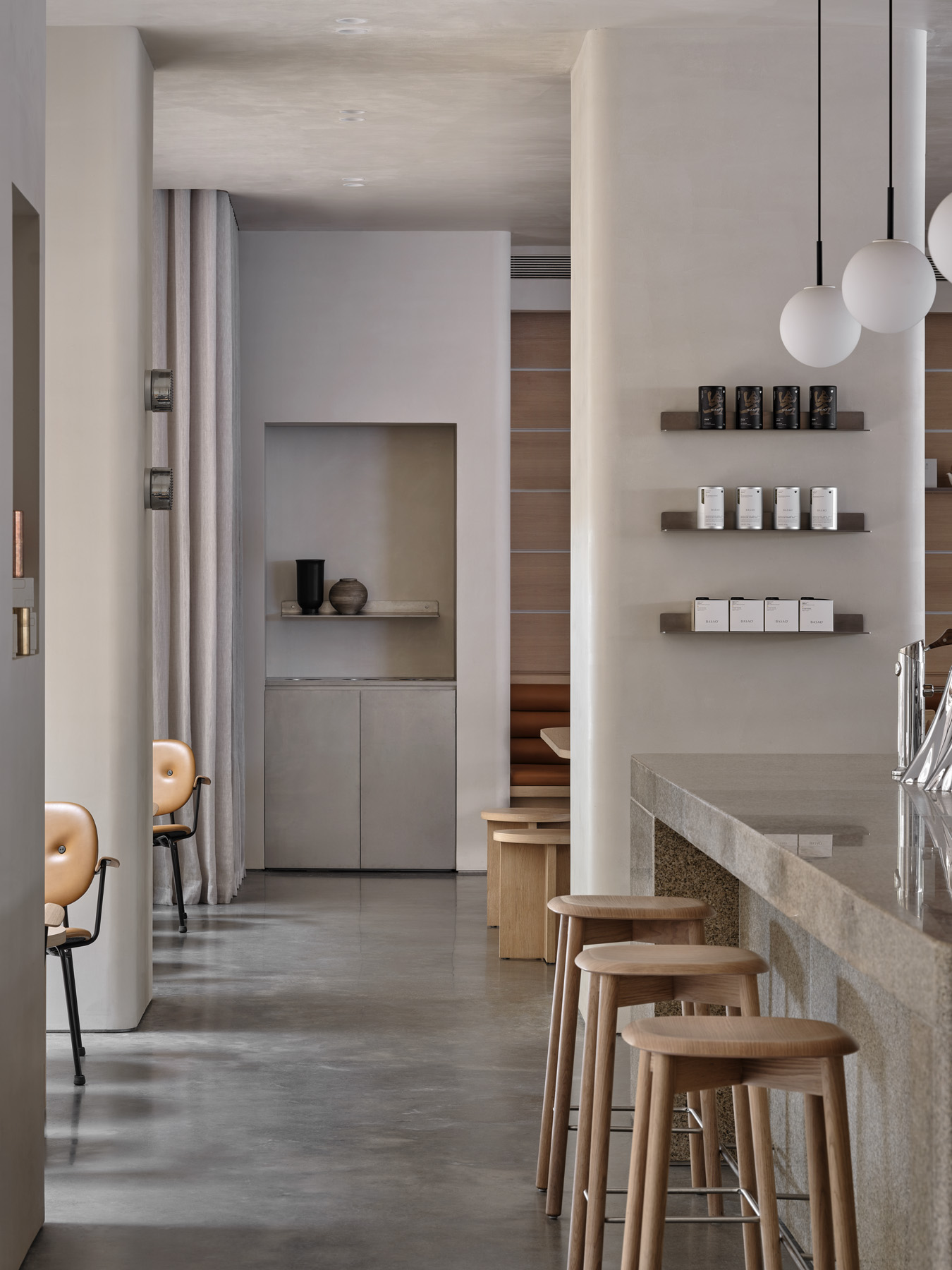
“The experience at the tea counter enables all senses; the touch of the countertop, the heat of the cup, the sound when the ceramic vessel meets the surface, the smell of the tea being poured, the many flavors and the warming, relaxing feel after drinking it,” says Peter Eland of Norm Architects.
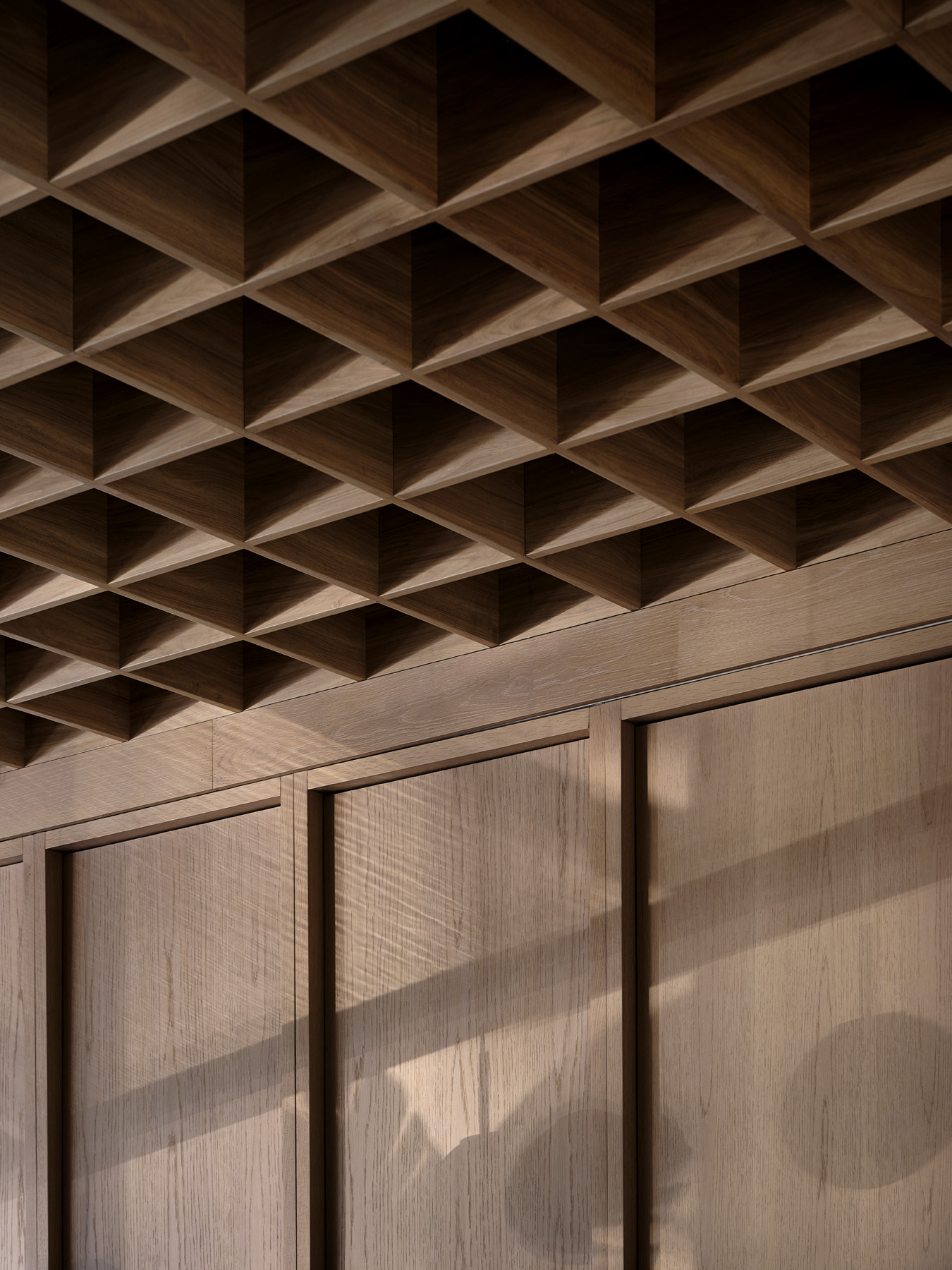

Shelves and podiums of merchandise invite visitors to touch and explore through a retail design that merges contemporary interpretations of tea culture and local features.
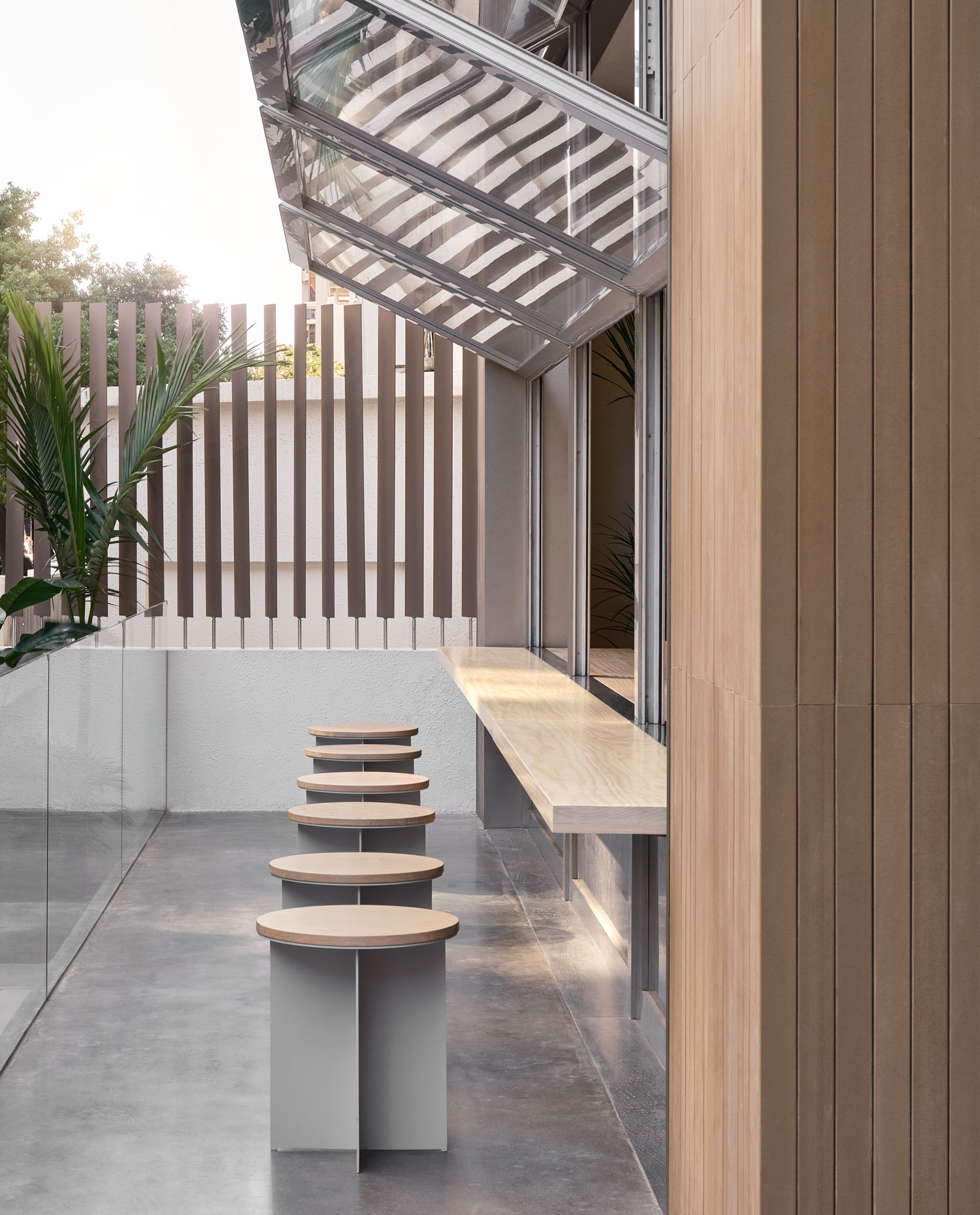
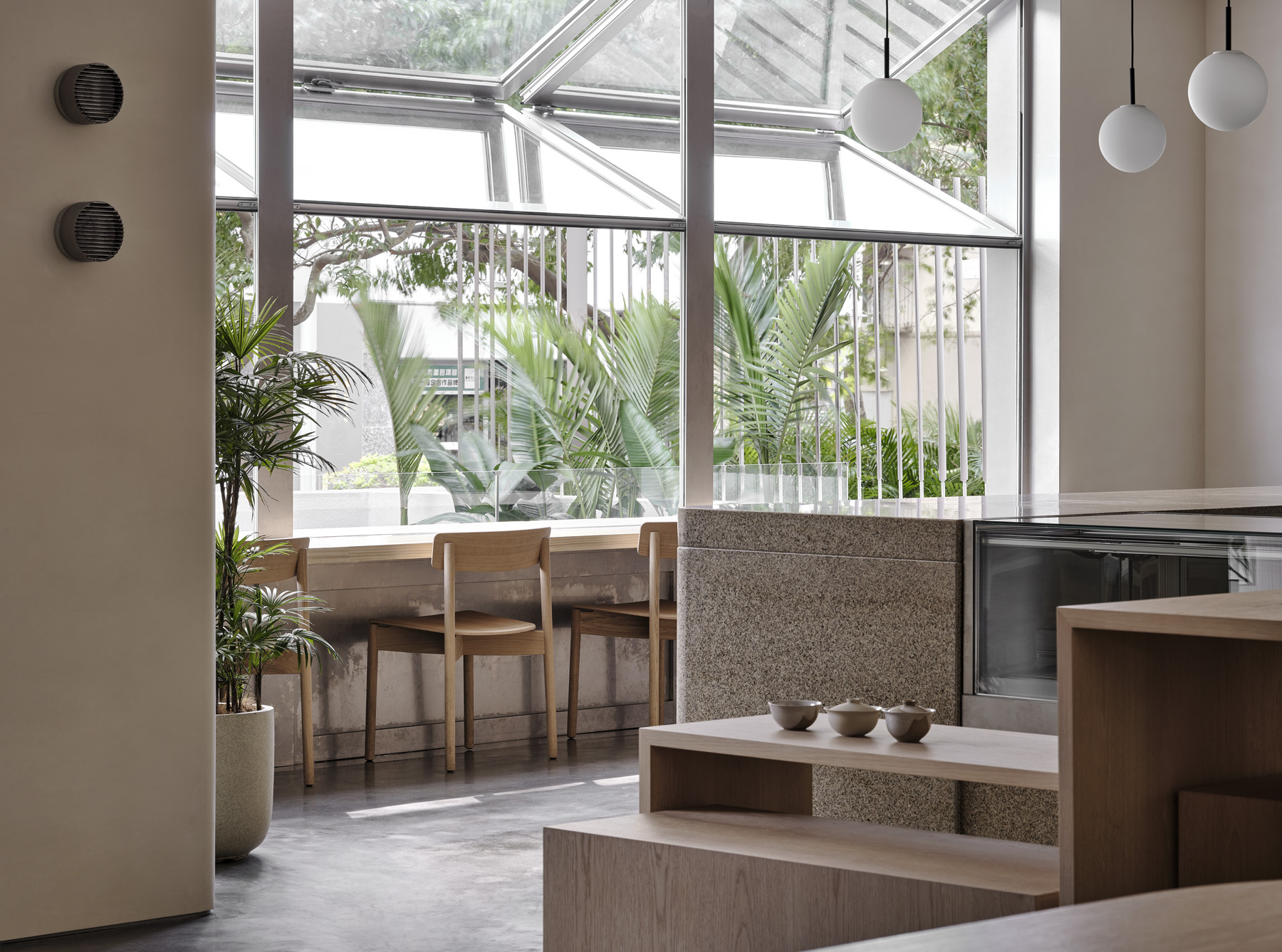
The space is large—just over 1,730 square feet—but achieves moments of privacy and surprise through varied architectural elements and materials. A built-in sofa or reclining chairs offers space to relax or read a book, while at the tea counter one can engage with and learn from the staff.
